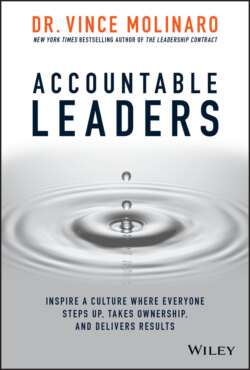Читать книгу Accountable Leaders - Vince Molinaro - Страница 32
5. Repurposing Corporations
ОглавлениеWhen I was doing my graduate work, I was influenced a lot by the research and thinking of Dr. Willis Harman. He headed up an organization called the World Business Academy. I was fortunate enough to spend time with him and hear his lectures. At the time, he believed that corporations were becoming the dominant institution in our society. As a result, they needed to broaden their purpose from a self-serving focus on profit and shareholder returns to making the world a better place. His ideas influenced my thinking about repurposing the role of business in society.
I’ve been watching this trend continue to unfold ever so slowly since those days. Recently, it seems to be gaining some momentum once again. For instance, in 2018, Larry Fink, chairman and CEO of BlackRock, wrote his annual letter to CEOs and challenged his peers not to be so single-mindedly focused on quarterly results and profits.27 He wrote that society is looking to the private sector and expecting them to help address some of the world’s biggest challenges. Fink is onto something because research conducted by the Edelman Trust Barometer reveals the public’s increasing expectations of CEOs.28 Eighty-four percent of people surveyed expect CEOs to inform conversations and policy debates on one or more pressing social issues, including jobs, the economy, automation, regulation, and globalization. They also found that 56 percent of people lose respect for CEOs who remain silent on critical social issues. The report concludes that to build trust, CEOs must lead with purpose, be authentic, and galvanize employees on the social issues that matter to them. I believe this is one of the reasons we are seeing more CEO activists—business leaders who are speaking out and taking a stand on important social and global issues like climate change, food security, poverty, domestic violence, mental health, and immigration, to name a few.
In August of 2019, the Business Roundtable, an association of CEOs of America’s leading companies, released a new statement on the purpose of a corporation.29 For a long time, the purpose of corporations was clear—create value for shareholders. The new purpose statement lays out a broader set of five commitments:
Delivering value to customers,
Investing in employees,
Dealing fairly and ethically with suppliers,
Supporting communities in which companies work, and
Generating long-term value for shareholders.
This new purpose statement was signed by 181 prominent CEOs who committed to lead their companies for the benefit of all stakeholders: customers, employees, suppliers, communities, and shareholders. It was an exciting moment. Like many, I applauded their efforts. Now, I’m not sure whether these CEOs realized it at the time, but in creating this new purpose statement, they also established a new leadership contract for themselves. We’ll see whether they will honor these commitments and if they will be genuinely accountable as they lead their organizations into the future.
